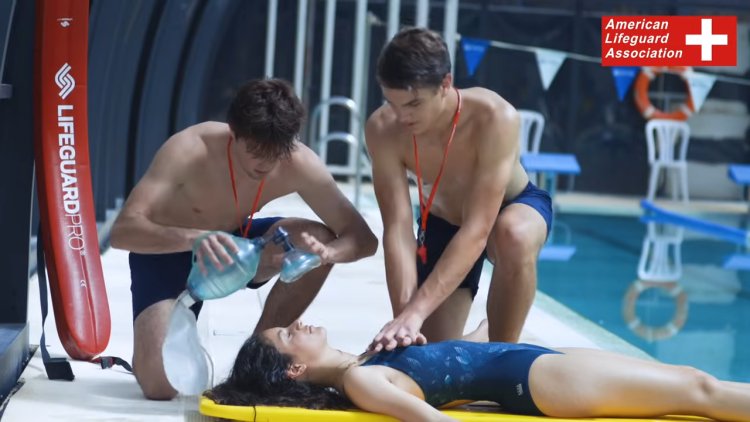The Lifeguard’s Journey: Training, Skills, and Certification
Lifeguards play an invaluable role in public safety, acting as first responders in water-related emergencies. Their dedication, vigilance, and preparedness make a significant impact on reducing drowning incidents and promoting water safety. American Lifeguard USA fosters a strong sense of responsibility and commitment among lifeguards, ensuring they uphold the highest standards of safety and professionalism.

Becoming a lifeguard is not just about watching over swimmers; it is a journey of rigorous training, skill development, and obtaining the right certification. A lifeguard is responsible for ensuring safety in aquatic environments, preventing accidents, and responding effectively in emergencies. The journey begins with choosing the right training program, such as those offered by American Lifeguard USA, which equips candidates with essential skills and knowledge.
Lifeguard Training: A Comprehensive Process
Lifeguard training is an intensive process that involves learning water rescue techniques, CPR, first aid, and emergency response. Candidates undergo hands-on practice in real-life scenarios to ensure they can act swiftly and effectively in emergencies. American Lifeguard USA provides industry-leading training programs that cover various aquatic environments, including pools, lakes, and oceans. This training enhances a lifeguard's ability to assess risks, enforce safety rules, and respond to accidents.
Essential Skills Every Lifeguard Must Have
Lifeguards require a diverse set of skills to perform their duties effectively. Physical fitness is crucial, as rescues often demand strength and endurance. Strong swimming abilities, excellent observation skills, and quick decision-making are also vital. Additionally, lifeguards must possess strong communication skills to provide instructions and coordinate rescues. American Lifeguard USA emphasizes the development of these essential skills to ensure lifeguards are fully prepared.
The Importance of Lifeguard Certification
Certification is a crucial step in a lifeguard's journey. It validates their ability to handle aquatic emergencies and ensures compliance with industry standards. American Lifeguard USA offers certification programs that meet national and international standards, providing lifeguards with the credentials they need to work in various aquatic facilities. Certification includes practical assessments, written tests, and simulated rescue scenarios to ensure lifeguards are well-prepared for real-world situations.
First Aid and CPR: Lifesaving Components
Lifeguards must be proficient in first aid and CPR, as these skills are often the first line of defense in saving lives. Whether it is administering CPR to a drowning victim or treating minor injuries, these skills are indispensable. American Lifeguard USA incorporates comprehensive first aid and CPR training into its certification programs, ensuring lifeguards can respond to medical emergencies with confidence and competence.
Lifeguard Training for Different Environments
Lifeguarding is not a one-size-fits-all profession. Different environments require specialized training. Beach lifeguards face unique challenges such as strong currents and marine life hazards, while pool lifeguards focus on preventing slip-and-fall accidents and ensuring pool safety. American Lifeguard USA offers specialized training programs tailored to different aquatic settings, preparing lifeguards to handle specific challenges effectively.
The Role of Lifeguards in Preventing Accidents
A lifeguard's primary role is accident prevention. By enforcing safety rules, educating swimmers, and maintaining constant vigilance, lifeguards help minimize risks. Their proactive approach to safety ensures that aquatic environments remain secure for everyone. American Lifeguard USA emphasizes the importance of accident prevention in its training, teaching lifeguards to anticipate and mitigate hazards before they become emergencies.
Continuous Learning and Skill Enhancement
Lifeguarding is an evolving field that requires continuous learning and skill enhancement. Regular recertification, refresher courses, and advanced training programs keep lifeguards updated on the latest safety techniques and rescue methods. American Lifeguard USA offers ongoing education opportunities to ensure lifeguards remain at the top of their game and prepared for any emergency.
The Lifeguard’s Commitment to Public Safety
Lifeguards play an invaluable role in public safety, acting as first responders in water-related emergencies. Their dedication, vigilance, and preparedness make a significant impact on reducing drowning incidents and promoting water safety. American Lifeguard USA fosters a strong sense of responsibility and commitment among lifeguards, ensuring they uphold the highest standards of safety and professionalism.
Conclusion: A Rewarding and Essential Profession
The journey to becoming a lifeguard is demanding but incredibly rewarding. It requires dedication, rigorous training, and a commitment to protecting lives. With the right training and certification from organizations like American Lifeguard USA, lifeguards gain the expertise needed to excel in their role. Whether patrolling beaches, pools, or water parks, lifeguards are the unsung heroes who ensure water safety for all.
What's Your Reaction?
















